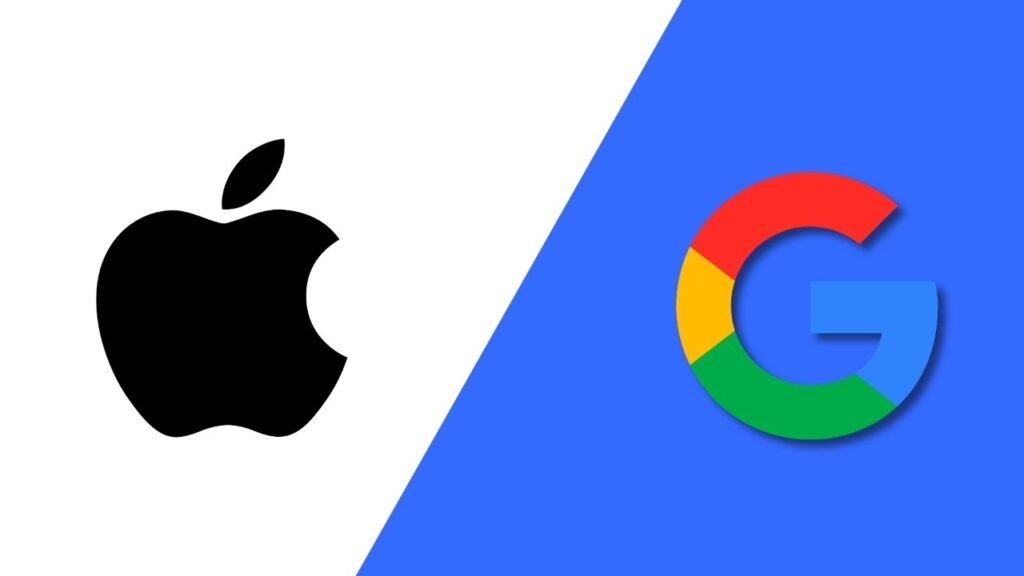Apple Inc. and Google have announced an unusual collaboration to bring technology to their mobile apps that will alert users when they come into contact with COVID-19. Individuals have to opt for the network, but it has the ability to track about a third of the world’s population. They unveiled a joint initiative Friday to develop a coronavirus smartphone “contact tracing” tool that could potentially alert people when they have crossed paths with an infected person. The step brings together the largest mobile operating systems in an attempt to use smartphone location technology to monitor and potentially contain the global outbreak of COVID-19. The step would allow the development of applications that would enable Apple-powered smartphones and the Google-backed Android operating system to exchange information with a standard “opt-in device” using Bluetooth wireless technology. Next month, companies plan to release user interface technologies to enable interoperability — so that the alarm operates independently of the operating system.
Silicon Valley rivals said on Friday that they are developing apps on their iOS and Android operating systems in two phases.
In mid-May, businesses will introduce the ability of iPhones and Android phones to exchange anonymous information wirelessly through applications run by public health authorities. Companies will also issue frameworks for public health applications to handle features
The second stage will take longer. In the coming months, both businesses will add the technology directly to their operating systems so that this communication monitoring program works without having to download the device. Users will opt-in, but this strategy ensures that far more users will be included.
Apple’s iOS and Google’s Android have around 3 billion users, more than a third of the world’s population. The pandemic killed more than 100,000 people and infected 1,63 million people.
Governments have told millions to stay home, putting the global economy in violent throes.
The pressure is building to ease these steps and get the economy back to work.
Contact-tracking is a crucial aspect of this as it can allow authorities to prevent a possible re-emergence of the virus as people resume daily activities. However, this technology is controversial as it requires the exchange of sensitive health information from billions of people through mobile devices that are constantly transmitting their locations. Some lawmakers and regulators have cautioned that the privacy of people should be protected.
“We caution that actions taken to contain the spreading of coronavirus must also preserve the right to privacy held by each and every American,” members of the House Freedom Caucus, a group of conservative Republicans in the House of Representatives, wrote in a letter to U.S. President Donald Trump. “Google’s colossal stores of data on daily movements of Americans, coupled with the might of local, state, and federal governments is an alarming prospect.”
On Friday, Apple and Google emphasized that their program protects the privacy of users. Consent is necessary and location data are not collected. The system does also not alert users who or when they come into contact with it. The companies said they could not see the data either, and noted that the whole system could be shut down when needed. Aside from privacy and confidence issues, problems include the provision of extensive and free testing to support the software, as well as connections to cell phones and other wireless devices, according to the American Civil Liberties Union.
“We must be realistic that such contact tracing methods are likely to exclude many vulnerable members of society who lack access to technology and are already being disproportionately impacted by the pandemic,” Jennifer Granick, ACLU’s surveillance and cybersecurity counsel, said in a statement. For Apple and Google, these close collaborations between such long-standing competitors are exceptionally unusual. Software companies have invested in mobile operating systems, app stores, media networks, and voice-recognition software for years — while exchanging barbs about the privacy of each other’s platforms. Nevertheless, both corporations have been under pressure to use their prodigious resources to help tackle the pandemic.
“All of us at Apple and Google agree that there has never been a more critical time to work together to solve one of the world’s most urgent problems,” the companies said in a joint statement. The system uses Bluetooth, a common way for most mobile devices to connect with each other. Apple and Google shared a theoretical example of how this works. Two people meet to chat for a few minutes, and their smartphones share anonymous identifiers in the background through Bluetooth to register that they have been in touch. These digital keys shift every 15 minutes or so and stay on these people’s privacy apps. The phone saves all successful keys and matches the individual’s key anonymously from the initial meeting days earlier. This sends a message to the phone of the other person with information from health officials about how to quarantine or self-isolate. Contact-tracking technology is not the first move against COVID-19 for either organization. Google launched an information website in March, while Apple released its own iPhone scanning software. Apple has also donated over 20 million masks to health-care workers and has designed face shields, and Verily, a unit of Google parent Alphabet Inc. is running virus-testing sites in some parts of California.

